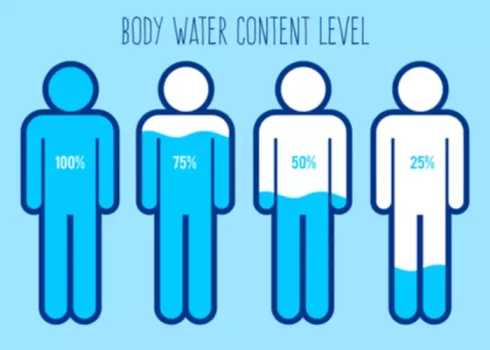
Acetaldehyde buildup, combined with excessive stomach acid do i have alcohol intolerance production, leads to digestive distress. Ovarian and breast cancers have also been shown to sometimes result in alcohol intolerance. If you usually handle alcohol fine, remember that many factors can influence your tolerance on a day-by-day basis! Factors such as when you last ate, the type and amount of food you had, when you last exercised, and the medications you’re currently taking can all alter alcohol’s effects. Alcohol intolerance stems from genetic causes, the symptoms of which can appear at any time in life.
- It’s the result of hereditary genes that cause a deficiency in the enzyme ALDH2.
- In some cases, managing the underlying condition may help alleviate symptoms of alcohol intolerance.
- The causes of alcohol intolerance are sulfites or other preservatives, chemicals, grains, or other components, and histamine.
- The impact results from a deficiency in the body’s capacity to constrict blood vessels, resulting in an elevated risk of fainting.
Environmental Factors
Studies of allergic rhinitis (that’s the nasal reaction to allergens) consistently show that placebos work quite well to treat a large fraction of allergy sufferers. One study even found that you can give patients a placebo, tell them it’s a placebo, and it will still decrease their symptoms. Alcohol intolerance in its most extreme form is often called Asian flush, even though it can strike people of any ethnic background. It’s caused by a faulty version of an enzyme called aldehyde dehydrogenase. Genetic mutations in both kinds of dehydrogenases are common, but it’s the slow versions of aldehyde dehydrogenase that often cause the flushing.
What Causes A Sudden Change In Alcohol Tolerance?

This may not be noticeable unless you actually feel your pulse; however, some people can feel their heart beating faster. This rapid heartbeat is not typically dangerous unless an underlying drug addiction health condition exists. The color change will generally be quite noticeable and affect your entire face.

What to know about alcohol allergies

Chemical additives, including artificial colors or stabilizers, further irritate the system and contribute to discomfort. People with grain allergies or intolerances often experience bloating, nausea, or sinus congestion after consuming specific alcoholic drinks. While facial flushing typically fades within minutes, more intense reactions like severe headaches or nausea linger for one to two hours or longer after drinking. The risk factors for alcohol intolerance include being of East Asian descent and conditions like asthma or allergic rhinitis, Hodgkin’s lymphoma, and grain allergies. Sudden onset alcohol intolerance is when an alcohol intolerance that was not present from birth occurs abruptly later on in life. Most people with ALDH2 deficiency will notice some effects from the first time they take a drink, but there’s often no known reason as to why an alcohol intolerance develops.
- To prevent alcohol intolerance, it’s important to avoid alcohol if you know it causes symptoms for you.
- If you think you have it, talk with your doctor and find out what’s causing it.
- In some cases, reactions can be triggered by a true allergy to a grain such as corn, wheat or rye or to another substance in alcoholic beverages.
- Acetaldehyde starts to build up in your blood and tissues, causing symptoms.
- If you have strange symptoms soon after drinking, your body may not be processing alcohol properly.
Keep in mind, these tests might not be as straightforward as diagnosing common allergens like Ryegrass, due to the complexity of alcoholic beverages. These may include runny nose, sneezing, itchy or watery eyes, and an itchy throat, similar to ragweed allergy symptoms. In severe cases, symptoms can escalate to difficulty breathing or anaphylaxis, a life-threatening allergic reaction. Alcohol intolerance is an immediate unpleasant reaction to consuming alcohol. It typically occurs because of a genetic difference that makes the body unable to break down alcohol efficiently. Alcohol intolerance is typically diagnosed through a combination of self-observed symptom tracking, a detailed medical history and a physical exam.

Find more top doctors on
Some people may also experience a drop in blood pressure, headaches, or abdominal pain after consuming alcohol. If you experience redness, swelling, nausea, or a headache after you drink, the problem may not be as simple as a hangover. You might have an allergy or intolerance to alcohol—or some of the ingredients used to make the spirit you’re drinking. Risk factors for alcohol allergy rash can include genetic predisposition, ethnicity, and the presence of certain health conditions. Understanding these factors can help individuals minimize their risk and manage any reactions if they occur. An alcohol allergy involves an immune system overreaction to alcohol, which can cause widespread and sometimes life threatening symptoms.
Avoid the beverage or beverages that seem to cause your reaction until your doctor’s appointment. If you do drink a beverage that causes a mild reaction, over-the-counter antihistamines may help relieve symptoms. For a more severe reaction—severe skin reaction, weak pulse, vomiting, or trouble breathing—seek emergency help right away. Although alcohol intolerance usually isn’t a serious issue as long as you don’t drink alcohol, you might want to discuss it with your doctor at your next appointment. If your exposure to an alcoholic drink ingredient is on a regular basis, then chronic conditions such as IBS, headaches and migraines might be ongoing.